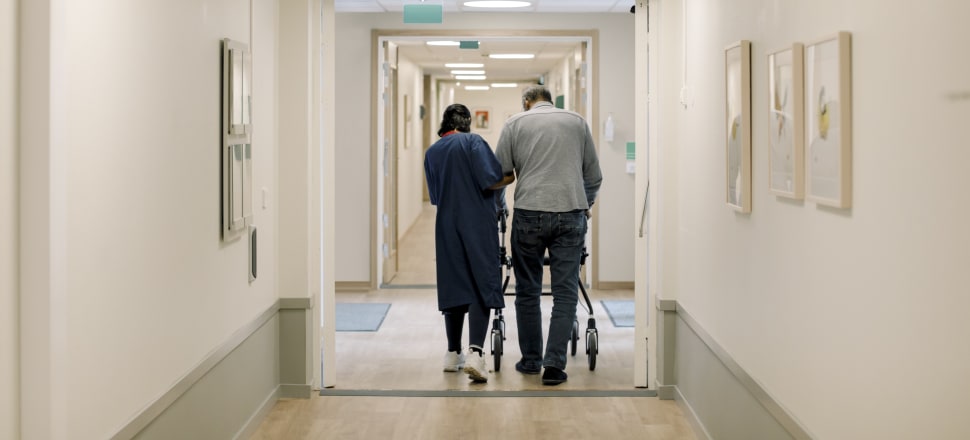
Staffing shortages and funding shortfalls have made aged care difficult to stack up financially
An aged care provider with nearly 300 beds in six rest homes across the country is in financial difficulty and facing insolvency proceedings later this month.
Around 1200 rest home beds were lost last year as staff shortages and related funding issues bite, putting further pressure on the public health system.
Sound Care Group, which owns and operates rest homes in Northland, Waikato, Bay of Plenty, Taranaki and Otago, is facing a liquidation bid by Inland Revenue for three of its facilities.
READ MORE: * Care funding crises at both ends of life * Nursing Council prevents training school opening, despite workforce crisis * PM dodges questions over elderly living in poverty
Its aged care businesses in Taranaki, Katikati and Cambridge are facing liquidation proceedings which will be heard in the Hamilton High Court later this month.
Those locations make up 137 of the group’s 284 beds.
The company isn’t alone in running into financial trouble.
Aged care organisations are the largest providers of healthcare in New Zealand, with around 40,000 beds compared to the public health system’s 13,000 beds.
The care industry has long complained that chronic underfunding from central government has constrained growth. Despite predicted demand for more than 15,000 new beds by the end of the decade, the number of beds actually available reduced by more than 1200 in 2022, industry leaders say.
Meanwhile, the way the Government's funding model has operated means aged care companies face stiff competition for staff from the better-funded public health sector, which pays up to 30 percent higher wages.
Care bed funding is different from region to region, but the sector works it out to an average of just over $150 a bed a day, compared with around $1000 per bed per day in the public health system.
According to consulting firm Ansell Strategic, the New Zealand aged care industry is underfunded by $425 million annually.
Smaller providers mostly can't afford those wage pressures as staffing levels drop, meaning valuable beds can be left unoccupied or entire facilities closed.
Late last year the Government announced pay parity with the public health system, but while the Aged Care Association greeted the deal as a major win at the time, in March it told Newsroom the reality of the deal failed to meet expectations.
Association chief executive Simon Wallace said the $20m set aside in the first tranche of money – up to June 30 – was less than half of what was needed to achieve parity.
The sector believes the level of funding wasn’t anywhere near enough to handle the drain of nurses to better-paying public sector jobs, or to Australia.
Negotiations for the second funding tranche were expected to take place later in March but have yet to happen.







